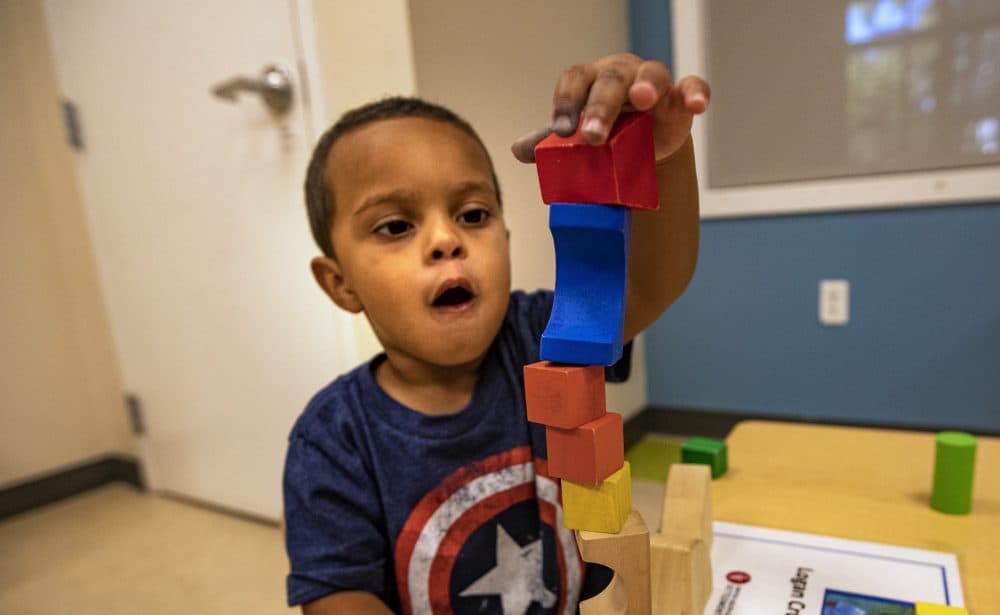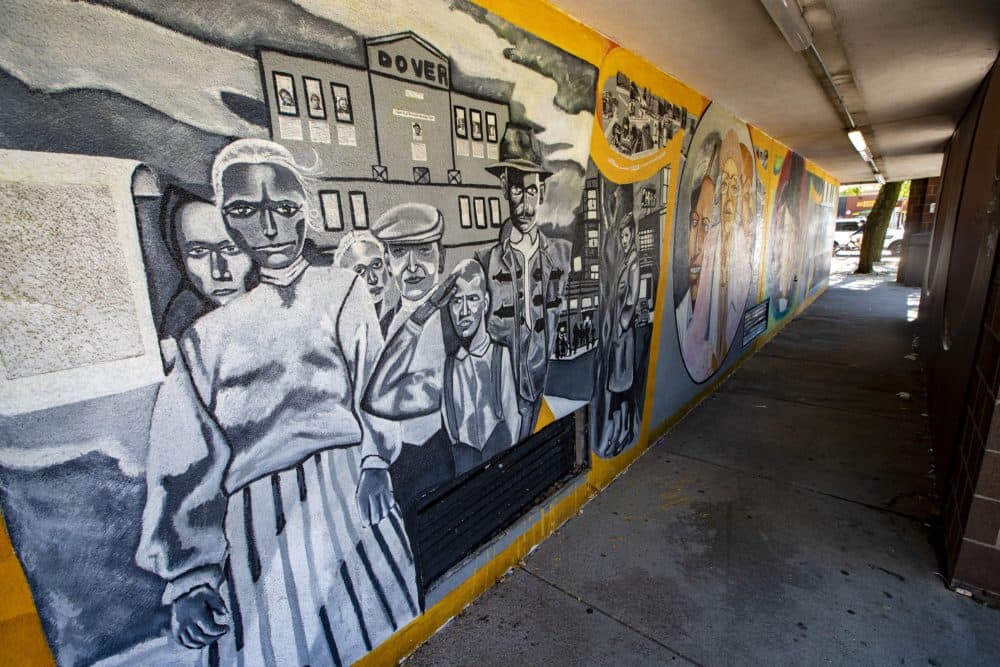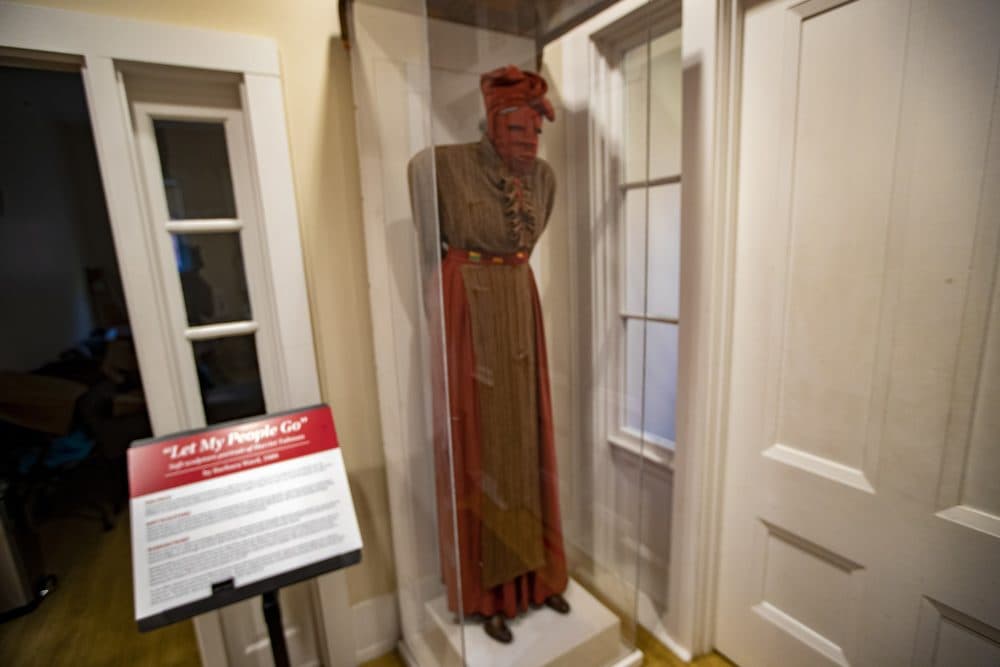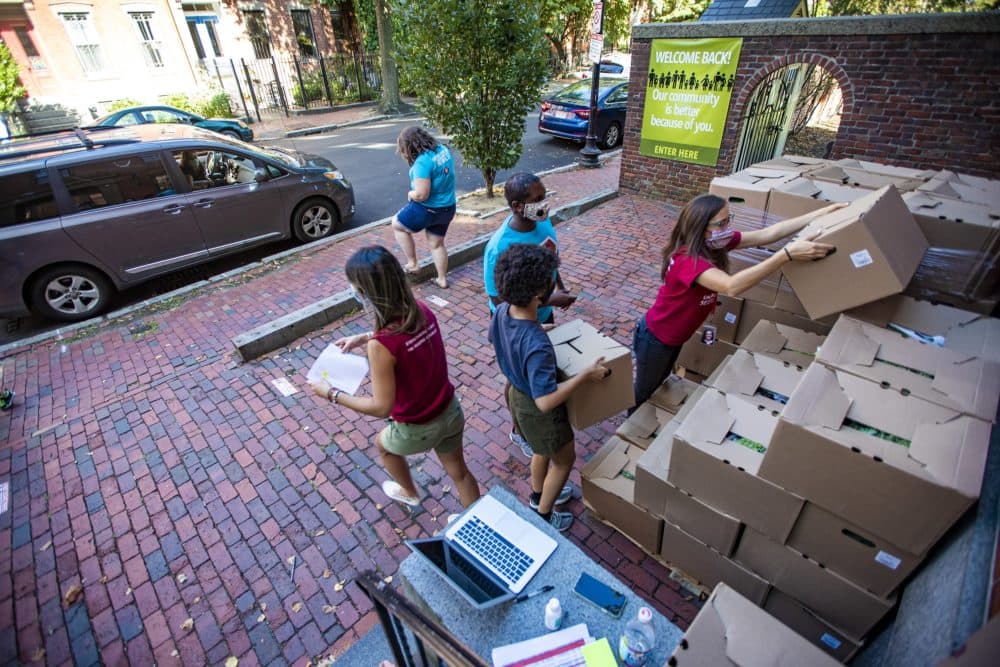Advertisement
Protesters Oppose Decision To Sell Harriet Tubman House For Development

The Harriet Tubman House, a beloved multi-use, community center in the South End, will soon be torn down to make way for condominiums. Though the demolition date is unclear, owner United South End Settlements has said without this sale, they won’t be able to continue providing vital services to families in the region.
Standing in the heart of the South End, the well-known "Honor Roll" mural tells the history of Boston’s Black community, the stories of those who lived here years ago. Neighbors. Family. Friends. Leaders.
Daunasia Yancey, founder of Black Lives Matter Boston, points out the faces in the mural she recognizes from her childhood.

“My friend Dominique and her father. We went to kindergarten and first grade together at the J. J. Hurley [School] before I went to METCO," Yancey said. “I haven't been down here on foot in a long time. It's very painful," she said. "This is where I grew up. This is my childhood, my aunt worked here. We were always in and out [of the Tubman House] summer camp. All of that."
Once this building is demolished, the mural that has stood here a little over two decades will be turned into a large digital rendition, the original to dust.
Yancey showed up with others to a protest in front of the old building on a recent Wednesday night, to try and save this local institution, a place she grew up down the street from, that reminds her of the home her family lost.
"We fight until we can't fight anymore. We fight until we win. And if it isn't this building, then it's the next," Yancey said. "Every march, every action, every speak-out, every post, every everything is part of what gets us moving forward. And so we can't discount all the steps along the way."
The first Harriet Tubman House was a haven for African-American women founded on Holyoke Street in 1906. Six women, including a friend of Tubman’s, created this place as a shelter from the discrimination as more people made their way north.
Advertisement

But, United South End Settlements vice president of development and external relations Jerrell Cox said their mission is about more than this building.
“By not leaving the building, by protesting this sale, you're halting this organization from getting the money it needs to survive at a very, very difficult time," Cox said. "It's very difficult to depend on philanthropy right now. We can only serve 60% of our kids. We need every dollar we can get."
The nonprofit has been criticized for misusing its endowment. In a factsheet on their website, staff at the nonprofit acknowledge they have been challenged by five executive leadership transitions in 18 years, as well as the increasing cost of maintaining three buildings in a quickly gentrifying region.
The sale will save the organization around $300,000 a year, Cox said.

During the pandemic, they’ve helped families by providing mini-grants to help pay for rent, food and utilities. They are currently providing daycare for many essential workers in the area. Yet, organizers such as Gabby Ballard say the Tubman House belongs to the community first. She is part of the I Am Harriet coalition, linked to the Party for Socialism and Liberation, that wants to save the property.
“The Harriet Tubman House served that purpose in many ways of being a gathering space for people without having to pay, without having to buy anything," Ballard said. "You can just come into this place, meet with people, be connected. And those sorts of services have now been pushed out of the Harriet Tubman house.”
Cox noted that each organization that used to rent space at the Tubman House received relocation assistance from the developer New Boston Ventures to continue their services elsewhere in the city. New Boston Ventures is also designating 5,000 square feet of space on the ground floor for community use. But community members say 5,000 square feet is not nearly enough.
"What gives me hope and inspires me is that we have been here for 128 years. This isn't our first pandemic as an organization," said Maicharia Weir-Lytle, president and CEO of United Sound End Settlements.
"We can get through this. If we stay close to our values as an organization and in the spirit of Harriet Tubman continue to focus on the people, we will be able to really help and support and continue to serve those that need us," she said. "Unfortunately, I think that's getting overlooked. A building has become representative of certain values where USES is really focused on people."
This segment aired on August 28, 2020.
